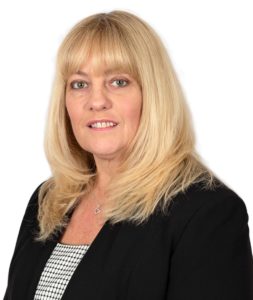In support of International Women’s Day 2020, we interviewed Fuen, Allison, Sally and Rebecca from our Cardiff, Blackwood, Barry and Bridgend offices to talk about why it is important to celebrate International Women’s Day and how we can achieve gender equality in the legal profession.
Why is it important to celebrate International Women’s Day?
 It is important to celebrate National Women’s Day to honour the achievements of women throughout history. We must celebrate the part they have played in minimising discrimination against women and increasing their access to rights enjoyed by men. But also to celebrate women of all backgrounds, ages and cultures coming together for one cause, to strengthen and empower women.
It is important to celebrate National Women’s Day to honour the achievements of women throughout history. We must celebrate the part they have played in minimising discrimination against women and increasing their access to rights enjoyed by men. But also to celebrate women of all backgrounds, ages and cultures coming together for one cause, to strengthen and empower women.
What woman inspires you the most?
A woman who inspired me was Princess Diana. Marrying into the Royal Family gave her a life of material luxury which she could have enjoyed without a care in the world. However, she took it upon herself to use her celebrity status to help as many people as possible. She raised awareness of humanitarian issues. She worked tired for charities and her selfless attitude can be summed up by one of her most famous quotes “Anywhere I see suffering, that is where I want to be doing what I can” She used her immense influence to shine a light on forgotten causes.
What can we do to achieve equality in the legal profession?

Whilst we have undoubtedly made progress over the years, we are still not where we need to be. The three main things the legal profession should focus on is closing the gender pay gap, raising awareness of unconscious biases and making work more flexible around family obligations.
I think generally women need to support other women. Whilst this might be a cultural problem, employers definitely play their part. I’m glad that CJCH encourages a culture of female employees supporting and empowering each other.
Have you encountered any challenges as a woman in your career?
Yes, however, they are more than visible challenges. Most of them are not obvious and they have more to do with the way in which women are educated  and the constrained expectations society has on us. For example, because of this subtle, often unnoticed sexism, women tend to second guess their own judgement, seek external validation or moderate their speech in professional settings. For example, saying “If I may…”, “maybe…”, “perhaps…” before interjecting in a conversation, which is observed less in male colleagues. On a personal note, I have reflected and worked on this, and I invite all women to not let this “invisible” sexism to undermine their true potential.
and the constrained expectations society has on us. For example, because of this subtle, often unnoticed sexism, women tend to second guess their own judgement, seek external validation or moderate their speech in professional settings. For example, saying “If I may…”, “maybe…”, “perhaps…” before interjecting in a conversation, which is observed less in male colleagues. On a personal note, I have reflected and worked on this, and I invite all women to not let this “invisible” sexism to undermine their true potential.
There are “visible” challenges society still must overcome in order to achieve real equality, one of the biggest being the impact of parenthood on women’s careers, compared to the small impact it usually has on men.
What does women’s empowerment mean to you?
To me, women’s empowerment means nonconformism with injustice and one’s capability to get rid of artificially imposed behaviours.
What do you think is the biggest issue today facing women in your profession?
 Starting a family and striking a balance between children and work is challenging, although this is not limited to the legal profession.
Starting a family and striking a balance between children and work is challenging, although this is not limited to the legal profession.
There is pressure on returning to work to enable career progression. Although shared maternity/paternity is available, the perception is still that the mother should take the time off.
Ultimately, there is the added pressure that this will impact on career development and advancement.
On international women’s day, what is the most important message you want to send out to young women thinking about a career? (Or Career in Law)
I am fortunate enough to work in a firm where there is no gender bias, indeed we have an equal split of male and female senior partners, giving me the same opportunity to progress along with my male colleagues.
The historic misconception of gender imbalance has long since passed in most professions and regardless of your choice of profession, I would encourage women to pursue their chosen career and set aside any fears of being overlooked by men.



 As International Women’s Day approaches, it is a time to reflect and celebrate the amazing accomplishments of women around the world and how far we have come in advancing the rights of women.
As International Women’s Day approaches, it is a time to reflect and celebrate the amazing accomplishments of women around the world and how far we have come in advancing the rights of women.


